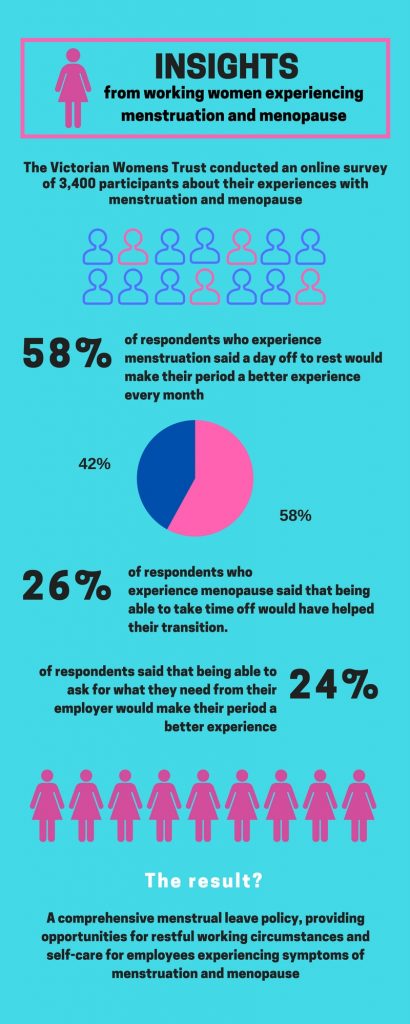The Victorian Womens Trust have urged Australian employers to consider implementing a paid menstrual leave policy in workplaces across the country, providing women who suffer severe menstrual side effects with workplace flexibility and the option of self-care.
The not-for-profit organisation started trialling a paid menstrual leave system in 2016 and say it’s been a success for employee wellbeing and workplace productivity. Now they’re encouraging other Australian businesses to adopt the policy in their own workplaces, releasing guidelines and policy structure for free on their website.
The policy outlines a system of flexible work, whereby the employee has the option of working from home, remaining in the workplace in circumstances which encourage the comfort of the employee (such as resting in a quiet area) or taking a day’s paid leave. Under the policy, employees would be entitled to a maximum of 12 paid days of leave per year in the event of inability to perform work duties because of menstruation and menopause, and their associated symptoms.

The policy is the first of its kind in Australia, but workplaces overseas have been offering “period leave” for years. Japanese women have been legally able to take paid menstrual leave since 1947, and similar policies have been taken up in Indonesia and South Korea. Italy’s lower house of parliament is in the process of drafting a law that mandates paid period leave from employers.
Paid menstrual leave is clearly on the minds of Australian women— the policy comes from a study facilitated by the Trust, where an online survey of 3400 people in Australia and overseas was undertaken to gain insight into the lives of people who experience menstruation and menopause.
58 per cent of respondents who have menstruated said that a day off to rest would make their period a better experience every month, while 26 per cent of those who had gone through menopause said that being able to take time off when needed would have helped their transition.
A further 24 per cent of those surveyed also said that being able to ask for what they need from their employer would make their period a better experience.
The full report and survey results will be released in late 2017.


[…] survey by the Victorian Women’s Trust found that over a quarter of participants would have found […]